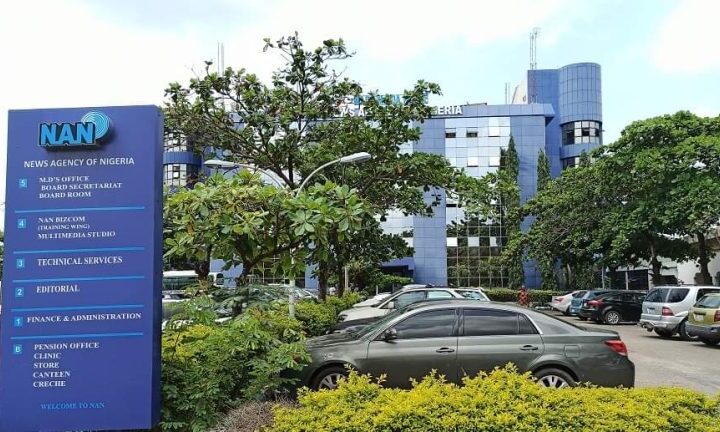
The Senate has ordered its committees on Petroleum Resources Upstream, Downstream Petroleum Sector and Gas to liaise with the Ministry of Petroleum Resources and the Presidential Implementation Committee on the Petroleum Industry Act (PIA), to facilitate the relocation of oil and gas companies in Nigeria to their various operational bases in host communities to ensure smooth operations.
The upper chamber reached the resolution after it considered a motion on the “Urgent need to encourage all Multinational and Nigerian Oil and Gas Companies to relocate to their Operational Bases.”
The motion was sponsored by Senator Albert Bassey Akpan (PDP, Akwa Ibom North East) and co-sponsored by 23 other Senators.
Bassey expressed concern that multinational and Nigeria oil and gas companies have over the years been operating from their respective operational bases until militancy and insecurity in the host communities in the Niger delta became the order of the day.
He said the reason proffered by the oil and gas companies for not relocating to their host communities has always been due to insecurity and hostilities in the host communities.
He said the Senate was aware that operating outside the host communities and operational base is the reason for the high cost of production which has been the bane of the country’s oil and gas industry, militating against maximum revenue from crude oil and gas sales to the federation account;
He recalled that this high cost of production has been one of the most contentious elements of our industry value chain.
According to him,the Senate was convinced that the recent passage and signing into law of the Petroleum Industry Act, 2021(PIA) by the National Assembly and the President of the Federal Republic of Nigeria respectively, is a major milestone towards the restoration of a lasting peace in the host communities;
He said that the Petroleum Industry Act, 2021, now place certain responsibilities on the security, peace and safety of oil and gas infrastructure on the host communities to safeguard and ensure peaceful coexistence between oil and gas companies and their host communities.
He added:“Further convinced that is an opportunity to restore, recover and rehabilitate the massive and huge infrastructural facilities abandoned by the various oil and gas companies in their various operational bases to ensure their full utilization; and assured that the relocation of these companies to their host communities will further boost development in those areas and enhance the corporate social relationships and strengthen out collective resolve to considerably reduce the contentious cost of production and ensure adequate returns to federation account.”
In his contribution,Senator Biobarakuma Degi-Eremienyo (Bayelsa East) said the agitations and problems within the oil and gas producing communities was as a result of their inability to easily access the management of the multinational companies to table complaints.
“I believe that if this motion is passed and implemented, it will go a long way to assuage the yearnings and apprehension of the people within these host communities.
“Mr. President, as a matter of fact, the cause of this situation is that the government of these areas are not even benefitting from the revenue, that is payment of tax, within the localities that they are exploiting this oil and gas, because the workers will claim that they are not resident in these areas.
“The payee is not accruable to the state government. These are some of the things the people suffer on account of locating the headquarters away from the source of the raw materials”, he said.
Meanwhile,the Senate has passed a bill for an Act to repeal the Electricity Power Sector Reform Act 2005.
In his lead debate,sponsor of the Bill, Sen. Gabriel Suswan (PDP-Benue),explained that the bill seeks among others, to repeal the Electric Power Sector Reform Act 2005.
He added that it also seeks to consolidate all legislations in the Nigerian Electricity Supply Industry (NESI), as it enacts an omnibus electricity act for the industry.
Senator Suswan also explained that the legislation also seeks to provide the framework that would attract more investors to leverage on the gains of the privatised electricity industry in Nigeria.
He said when implemented,it will accelerate growth in power capacity and improve generation of power through increased investment in new technologies leading to enhanced transmission and distribution of power generated while minimizing aggregate value chain loses.
He said, in spite of the modest milestones recorded in the Nigerian power sector, the sector has not been able to make electricity available to 75 per cent rural population as envisaged in the National Electric Power Policy.
“This is because the sector is currently plagued with a number of challenges some of which are operational constraints that emerged after the privatisation exercise.
He said the bill when passed, would provide the framework for power diversification through the use of cleaner renewable energy sources such as coal, wind, sun and ensure sustainable energy mix.
He said that the privatized power sector in Nigeria was facing a myriad of post-privatisation challenges including the absence of tariffs, inadequate enumeration, metering of consumers, limited access to funds for investment.
Other challenges according to him include high levels of Aggregate Technical Commercial and Collection (ATC &C) losses and poor revenue generation.
“All these constraints have received various interventions by the executive and legislative arms of the federal government over the years.
“But these challenges have continued to threaten the viability of successor companies including their financial capacity to invest in network improvement to guarantee reliable power supply as envisaged in their respective Performance Agreement.”
He said that apart from the operational constraints confronting the post-privatised power sector in Nigeria, the principal act which was the extant legal framework for the industry has some gaps and shortcomings that made it unsuitable to adequately govern activities of the market operator and market participants.
He said that the bill, when passed would provide the framework for power diversification through the use of cleaner renewable energy sources.
“The bill will also eliminate current barriers to private sector investment across the power value chain and attract the funds needed to address the current funding gaps confronting the industry since the privatisation of the power sector,”he said.
The bill, after passing second reading was referred to the Committee on Power by President of Senate Ahmad Lawan for further legislative work.






















